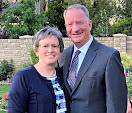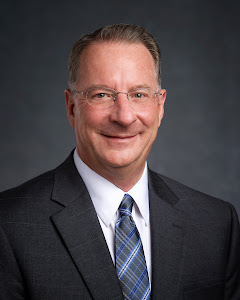"The Johnsons Come to Visit"
By Elder Darrel L. Hammon
One of the great things about being senior missionaries is that your children can come visit and you can go to the beach with them. And that's exactly what we did when Anna Rose, Christiaan, and Emiline came to visit in January. We had a great time and visited a few spots along the way.
 |
| Dedication Site--Elder Ballard in 1978 |
Elder Ballard's Dedication Memorial--In 1978, Elder M. Russell Ballard came to the Dominican Republic and dedicated it for the preaching of the gospel. Since then, many Dominicans have joined the church. Currently, there are 18 stakes, several districts and a beautiful temple in the Dominican Republic. The dedication site is in a park along the street called Mirador, a beautiful place that overlooks Santo Domingo.
 |
| Emline by a really old cannon |
El Conde--El Conde is in the Colonial Zone, a very historic site. It is where Santo Domingo originated in the early 1500s. Santo Domingo is the oldest city in the Americas. The Colonial Zone is an incredible array of historic buildings, including a home built for Diego Colon. Because we happened to go on a day classified as a holiday, many of the shops were closed; so, the Johnsons didn’t experience “El Conde” in all of its majesty. Thankfully, the traffic wasn’t as bad that day.
Tres Ojos--Tres Ojos is an underground series of little lakes that the Taino Indians, natives to the DR, participated in religious ceremonies. It is just beautiful inside with lots of rocks, hanging vines, and little lakes, which are also called cenotes. Tres Ojos is also famous because some parts of the Tarzan movies were filmed here.
 |
| Emiline at the beach in Juan Dolio |
Juan Dolio Beach--We spend two nights and three days at the Barceló, which is a wonderful hotel in Juan Dolio along one of the beautiful beaches in the Dominican Republic. We ate lots of good food, played on the beach, went snorkeling, swam in the pool, and just relaxed with our family. We ate mostly in the buffet restaurant, but we did eat in one of the restaurants onsite. Christiaan ordered fish and received quite a surprise.

The Santo Domingo Temple--Anna Rose and Christiaan along with Hermana Hammon were able to attend a session. Ironically, they and two other couples were English-speakers so the session was done in English. But they had a wonderful experience in one of the more beautiful temples in the world. Elder Hammon (a.k.a. "Papa Hammon") stayed and played with Emiline, truly a enjoyable task.
 |
| Consuelo Branch |
Consuelo Branch—Anna Rose’s favorite place we went while they were here was the Consuelo Branch, a little branch that we sometimes attend. Anna Rose played the piano/keyboard during Sacrament meeting. The children were fascinated with her playing. During Sunday School and Primary, all of the children were gathered around her while she taught them some of the rudiments of playing. Presidente Montero, the Branch President, thanked her then and later thanked us profusely for Anna Rose and her talent. They all wanted her to come back and be a part of the Branch. The sisters in Relief Society were fascinated with Emiline’s blonde hair. One of the sisters just stroked it the entire time during Relief Society. Her blonde, wispy hair is such a contrast to the thick, wiry black hair of most of the people here.
 |
| Emiline and her new friend at the Almacen |
Bishops' Storehouse--Because we lived above the Bishops' Storehouse (a.k.a. "Almacén"), they were able to take a tour of the Almacén. While Anna Rose, Christiaan, and Hermana Hammon were in the temple, Elder Hammon and Emiline visited the Almacén where Emiline made a new little friend. Unfortunately, we had to leave, and the little girl began to cry. When Emiline and I were driving back to the temple, Emiline said, "Papa, we have to go find her." I tried to tell her I didn't know where she was, but Emiline wanted to go find this little girl. I wish we could have.
Overall, we had a wonderful time with them. It was so good to see them. It was especially fun to see Emiline and note how grown up she is becoming. We were amazed how huge her vocabulary and her speaking ability have become. We see and talk to her each week via Skype, but it is still amazing to have the “live Emiline” in front of us. We shared lots of hugs and kisses. She is definitely the sweetest.


















